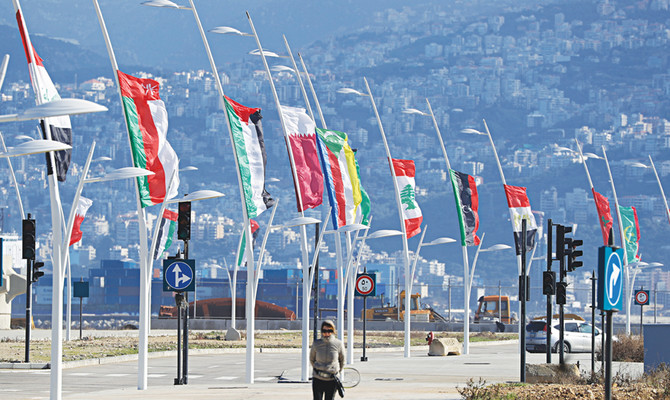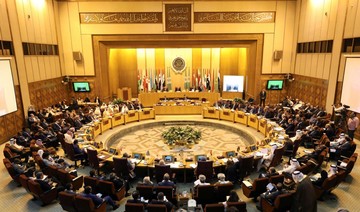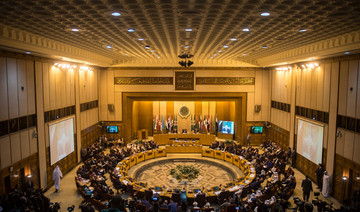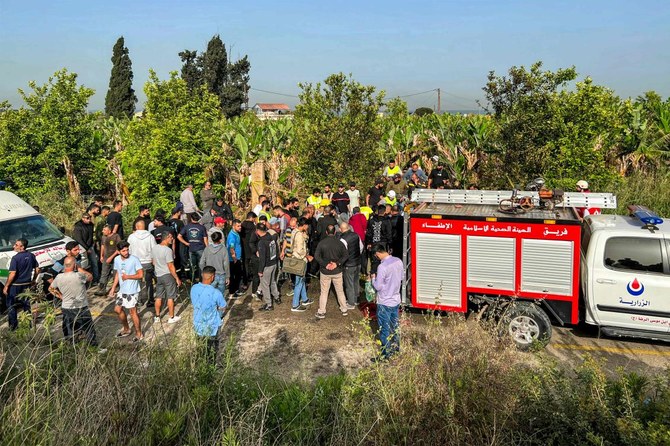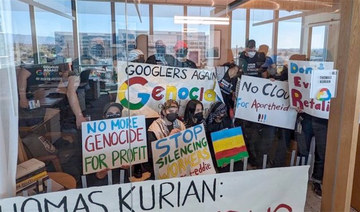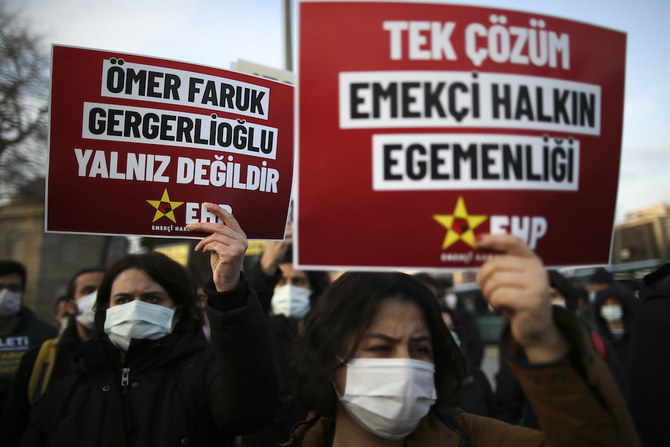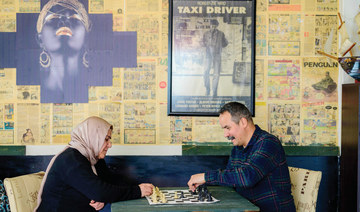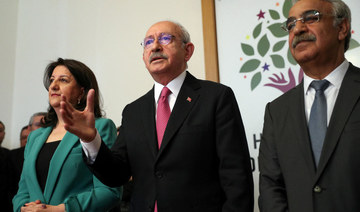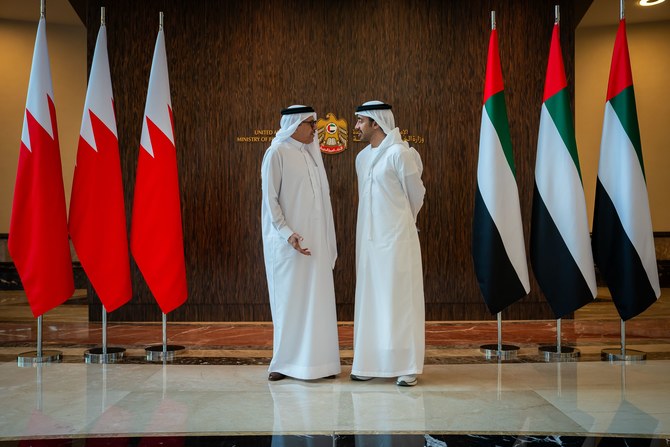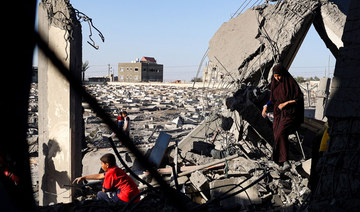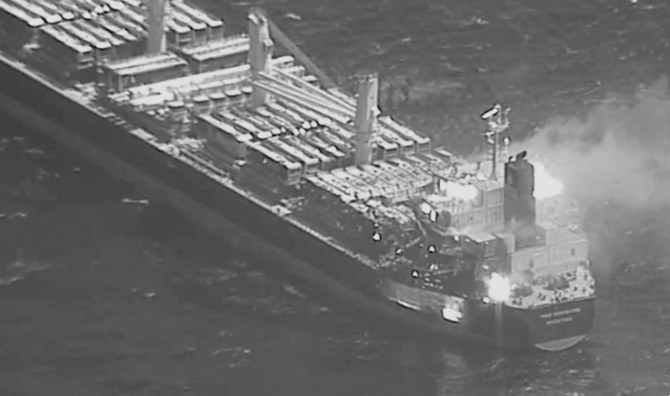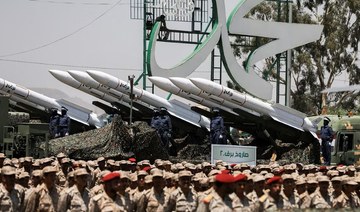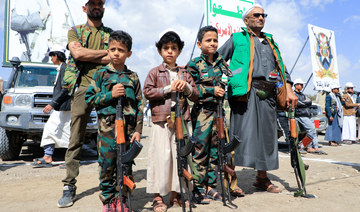BEIRUT: The plan was that heads of state from the Arab world would arrive in Beirut to discuss economic and social development. But like much in Lebanon at the moment, it did not go according to plan.
To begin with, only two heads of state — from Qatar and Mauritania — are attending the Arab Economic and Social Development summit. The meeting, which Lebanon had hoped would boost its sinking economic credentials as it struggles to form a government, has been mired in controversy for days.
Should Syria be invited? Yes, said Hezbollah and its political allies in Lebanon. No, said the Arab League.
Then a debate raged over whether Libya should receive an invitation, because of the unresolved mystery surrounding the disappearance of a Lebanese cleric in Libya four decades ago. In the end Libya boycotted the summit after Lebanese supporters of the cleric tore down a Libyan flag on a Beirut street.
Nevertheless, the summit’s media spokesman Rafic Chlala told Arab News: “The presidents who decided not to attend the summit have sent their delegates, which means the summit hasn’t failed, as some are trying to portray it.”
The delegates have much to discuss. According to the Arab League Deputy Secretary-General Houssam Zaki, there is no dispute about the items on the agenda.
They include “Arab food security, the development of an Arab Free Trade Zone, the completion of the requirements to establish the Arab Customs Union, the Arab strategy on Sustainable Development 2030, launching the work to establish the joint Arab electricity market, the strategic vision to promote and activate joint Arab work between the tourism and culture sectors in Arab states, managing solid waste in the Arab world and developing policies that deal with Arab women’s affairs and promotion of their capacities.”
The agenda also includes ”supporting the Palestinian economy and Arab strategy to protect children and promote technical and vocational education in the Arab world, and addressing the challenges facing the United Nations Relief and Works Agency for Palestine Refugees (UNRWA) and their consequences on the Palestinian refugees.”
The issues are supposed to be economic and social, but the fallout from the Syrian civil war will inevitably dominate. Discussions took place on Saturday about a proposed Lebanese addition to the final communique calling for “the dignified return of refugees to Syria.”
Minister of Economy Raed Khoury told Arab News: “Lebanon is demanding the encouragement of the safe return of refugees to the safe zones. Some countries were rooting for the ‘voluntary return,’ while some wanted to delete the whole paragraph, on the grounds that it is a political and not an economic matter that should be discussed during the next regular Arab summit that will be held in late March, in Tunisia.”
Lebanon is currently home to more than a million refugees, which is, according to Khoury, “a huge burden on the Lebanese economy and the social situation.”
During the summit, Lebanese President Michel Aoun is expected to launch an initiative on “the development of a funding structure to rebuild Arab states that have witnessed armed conflicts.”
The assistant Secretary-General of the Arab League, Haifa Abou Ghazaleh, said: “The Beirut summit is very important as it is being held only few months before the World Sustainable Development Summit.
“Arab states have committed to implementing the 2030 sustainable development plan, with its economic, social and environmental aspects, and the Beirut summit provides an important opportunity to promote development in Arab states, by combining knowledge, youth and wealth.
“This combination gives the Arab community a great and strong chance for a new beginning, to shift toward knowledge economies. This is what we are all seeking, to build a knowledge society, turning the massive capacities, natural resources, human potential and knowledge-based wealth in the region into a base to develop social integration and cohesion, in order to reach sustainable development that will promote Arabs’ wellbeing.”
The discussions of the Arab Civil Society Forum in Beirut, which preceded the summit, indicated that the “Arab region is witnessing the highest levels in income inequality around the world, where 10 percent of its population is making 61 percent of the total income, while half of the population is only making 10 percent of it, despite the wealth of resources in the region.”
The forum called on Sunday’s summit to “adopt economic and social policies to reduce inequality in all its forms through the redistribution of wealth.”
According to the Arab League, “a strategic framework developed by the Council of Arab Ministers for Social Affairs, regarding the elimination of multidimensional poverty” will be suggested at the summit.
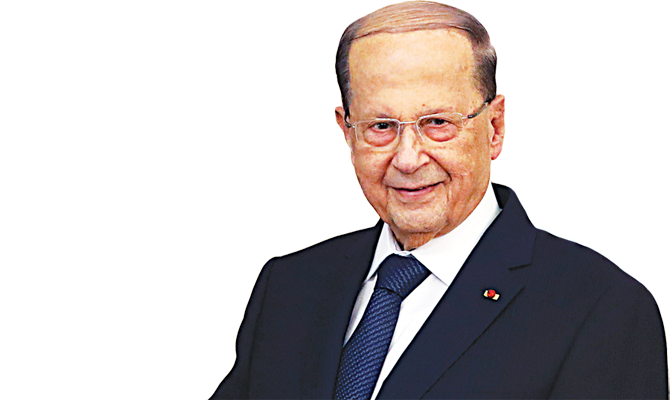
Lebanese President Michel Aoun is expected to launch an initiative on reconstruction in Arab states affected by armed conflict. (AFP)
The League estimates that the number of poor people in Arab states reached 116 million in 2014.
While the issues are weighty, the view on the Beirut street is unconvinced. “Lebanon is the king of missed opportunities,” Jihad Jrab, a bank manager told Arab News. “We had the opportunity of making our image look better, especially in these trying times, so that these visiting leaders would come and give the proper attention needed to the citizens of this country. It was evident that they did all they can to not gain
this attention.”
Bassam Jrab, Jihad’s cousin and an engineer in Lebanon, said: “In order to attract people to invest in the country you need to present a solid front … to show that there is security, that there is a working government, and a respectable presidency.
“You have a president who invited a country to attend the summit, then an employee of the government comes and forbids it from happening, what message does this convey? That there is a strong president? Or a chair’s leg?”
Lebanon has invested $10 million in hosting the summit, with an increase in security staff and the closure of streets, schools and public institutions. Nevertheless, many Lebanese questioned the country’s ability to host the summit, after eight months without a government and a looming economic crisis. Over the past couple of weeks, two storms hit the country, tore apart its infrastructure and left refugee camps flooded.
“They spend all this money on hosting a summit, while our homes are getting flooded and roads being pulled apart by these storms. Wouldn’t it be better to use the money to help the citizens?” shop-owner Omar Itani said.
There was frustration on social media. “I wish one day you [politicians] would think about the country’s benefit and see how to rescue what’s left of our dignity,” Hayat Gharzeddine tweeted. “Shame on you, such an embarrassment.”
Others were openly apathetic. “I don’t even know what the summit is about,” film maker Sandra Tabet said. “I’ve asked so many people and no one really seems to know or care.”



